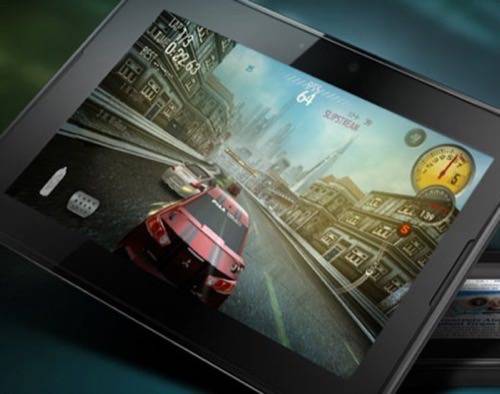It is Monday morning the week after a terrible cycle of news for BlackBerry maker Research In Motion. Its developer conference starts this week in San Francisco, and the company desperately needs some good press after the service outage last week. Two stories emerged this morning concerning RIM, one a concession by the company for the recent outage and another oddly tied to traffic accidents.

The fact of the matter is that RIM needs to find a way to pull itself off the mat. Without question, 2011 has been the worst year in the company’s history. Its new devices and development cycle has slowed, the PlayBook tablet was a dud in terms of sales and the cycles of its developer platforms have slowed to a crawl. The executive ranks at RIM have also been in turmoil. If the night is darkest before the dawn, will RIM survive to see another day?
“Our global network supports the communications needs of more than 70 million customers,” said RIM Co-CEO Mike Lazaridis in a press release. “We truly appreciate and value our relationship with our customers. We’ve worked hard to earn their trust over the past 12 years, and we’re committed to providing the high standard of reliability they expect, today and in the future.”
Traffic In UAE & Free Apps
“Our global network supports the communications needs of more than 70 million customers,” said RIM Co-CEO Mike Lazaridis. “We truly appreciate and value our relationship with our customers. We’ve worked hard to earn their trust over the past 12 years, and we’re committed to providing the high standard of reliability they expect, today and in the future.”
The first story emerged last night – Abu Dhabi and Dubai police said that there was a 20% decrease in traffic accidents because of the three-day service outage. This story screams of spin, coming from a country that has had diplomatic problems with RIM in the past. The second story crashed every mobile tech reporters’ inbox this morning: RIM is giving away $100 worth of applications to those affected by the outage.
The story coming out of the United Arab Emirates is suspect. Without knowing the country’s week-to-week traffic data, it is hard to put it in context. The story notes that traffic accidents among young males went down after the outage. The CTIA wireless organization has made driving while texting one of its two biggest priorities this year but it would be astonishing if one out of every five crashes in Dubai were BlackBerry Messenger or mobile email related. Either way, it is another blow to RIM in its negative press cycle.
The concession from RIM to give away applications is also the work of a PR spin machine. More or less, this is the type of thing that should be expected from a large company when it makes a serious gaffe. The selection of apps (which, ironically, includes DriveSafe.ly Pro and Enterprise) will be available from Wednesday Oct. 19 to the end of the year.
QNX & The Future Of RIM
The PlayBook has not sold to RIM’s expectations. Earlier this year the company was touting the fact that anybody who owned a BlackBerry (at the time about 55 million worldwide) would love one of RIM’s tablets. Sales have not been equally as upbeat and the PlayBook (like any other non-iPad tablet) has seen a dramatic price reduction.

RIM is hampered by its slow development cycle when it comes to QNX. Standard native applications like email and calendar were not present when the tablet first rolled out and the ability to run Android apps through its “app player” is still not ready for public consumption. If RIM released a fully functional BlackBerry tablet with the ability to run Android apps, that would have been a tablet many would have bought.
The first QNX-based smartphones are coming out next year, supposedly early in the year with the first prototypes likely to be seen at the Consumer Electronics Show (it would be a big red flag if they were not). RIM cannot allow the problems it faced with the PlayBook to hamper its new line of smartphones. Doing so will put the company on a death spiral from which it will not soon recover. The current BlackBerry OS 7 devices are lame ducks in the development cycle, although they should hang around in the enterprise for some time as hardware replacement cycles are slower than in the consumer realm.
No Imminent Demise, But Signs Are Troubling
Add everything up – squabbling execs, QNX woes, sales drops, loss of consumer mind share and the recent technical problems and the signs are there for the death of BlackBerry. Not so fast. RIM is still a huge company and it controls 19% of the U.S. smartphone market. We wrote in July three reasons why RIM should not be counted out. The same principles still apply. That market share has gone down from 24% earlier this year, mostly due to Android. Yet, RIM still has a significant war chest. It may not have the kind of money that Apple does, but multi-billion dollar international companies do not go away overnight. Not even Nokia. RIM can hold on for a long while without being swallowed by Microsoft or liquidating its consumer mobile business. The key will be how the company spreads it resources. Its smartphone mobile browser needs to get better and new devices that look more like what consumers expect from a modern smartphone need to emerge from QNX. RIM has the resources to do this.
2011 has been a bad year for RIM, yes. It also could be seen as a bridge year. The year it suffered through a development slump as it jumped to a new OS. The year it endured turmoil in its aging infrastructure, both in the physical world and its executive ranks. The fork is in front of Research In Motion. One way leads to a Nokia-sized collapse. The other leads to future prosperity and reclaiming a competitive roll against Android and iOS.
The question becomes: does RIM have what it takes to pull itself away from the brink? The road is clear if it can take the first step down the path.

















